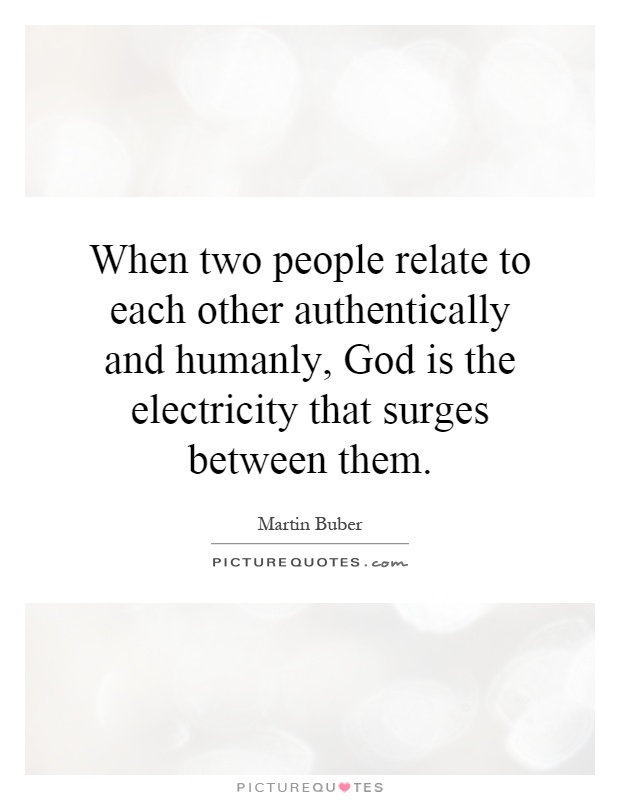When two people relate to each other authentically and humanly, God is the electricity that surges between them

When two people relate to each other authentically and humanly, God is the electricity that surges between them
Martin Buber, a Jewish philosopher and theologian, is best known for his concept of the I-Thou relationship, which emphasizes the importance of authentic and human connections between individuals. In his view, when two people relate to each other authentically and humanly, God is the electricity that surges between them.Buber believed that true connection between individuals can only occur when they see each other as unique and valuable beings, rather than as objects or means to an end. This type of relationship, which he referred to as the I-Thou relationship, is characterized by mutual respect, empathy, and a deep sense of presence. In this state of being, individuals are fully engaged with each other, open to the other's perspective, and willing to be vulnerable and authentic.
According to Buber, God is present in these moments of genuine connection, acting as the force that animates and energizes the relationship. This divine presence is not something external or separate from the individuals involved, but rather emerges from the shared experience of being fully present and engaged with each other. In this sense, God is the electricity that surges between them, sparking a sense of awe, wonder, and reverence for the sacredness of the moment.
Buber's concept of the I-Thou relationship has profound implications for how we relate to others in our daily lives. It challenges us to move beyond superficial interactions and transactional relationships, and instead cultivate a deeper sense of connection and intimacy with those around us. By approaching others with an attitude of openness, empathy, and respect, we can create spaces for authentic and meaningful encounters that are infused with the presence of the divine.












 Friendship Quotes
Friendship Quotes Love Quotes
Love Quotes Life Quotes
Life Quotes Funny Quotes
Funny Quotes Motivational Quotes
Motivational Quotes Inspirational Quotes
Inspirational Quotes